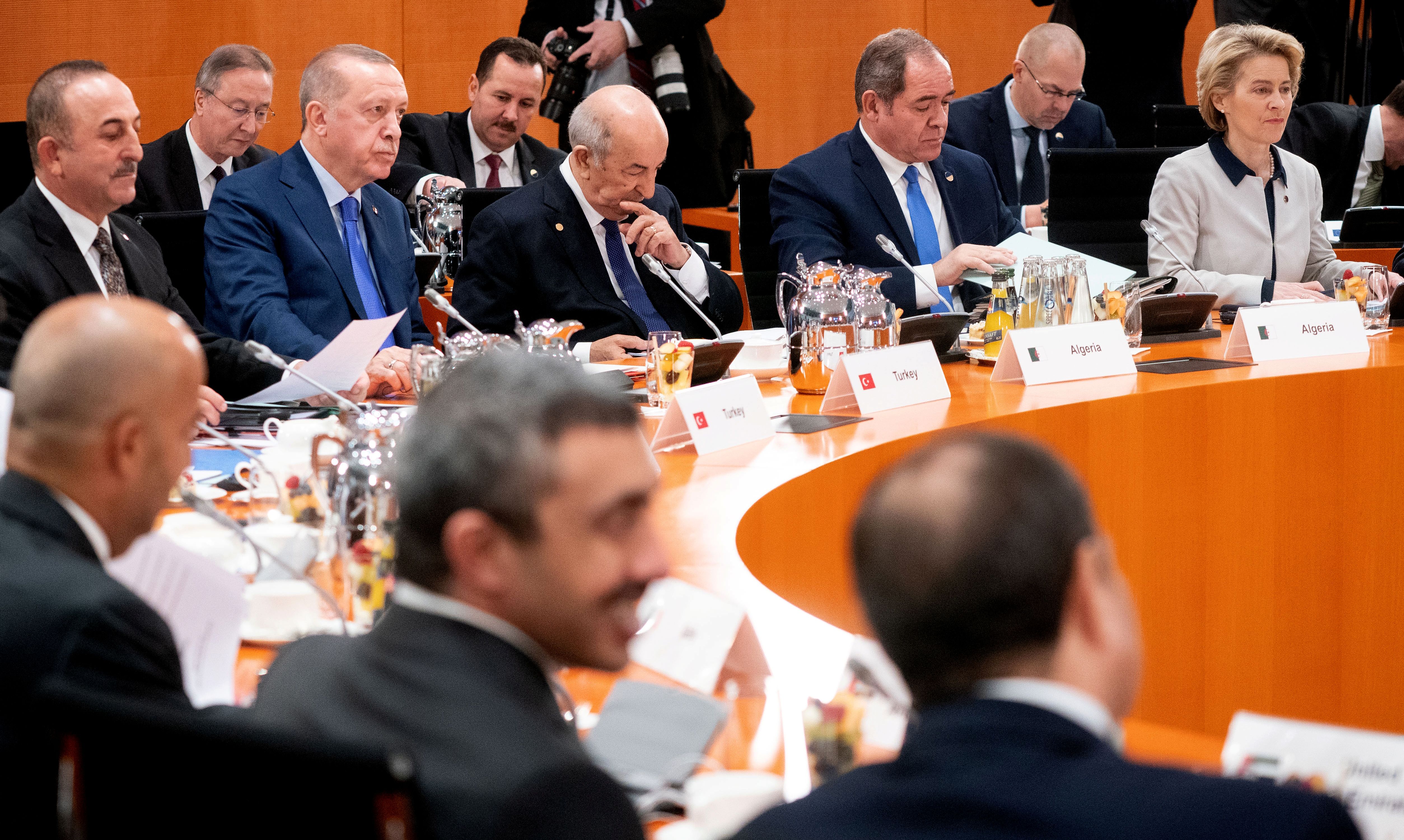Turkey’s Involvement in Libya

Turkey as a GNA Ally
In the civil war in Libya, which is mostly a clash of forces between the GNA led by Fayez al-Sarraj and the Libyan National Army (LAN) of Gen. Khalifa Haftar, Turkey has supported the GNA. It is a government that enjoys international recognition, allowing the Turks to present themselves as defenders of an order in which power cannot be gained by force. Moreover, the LNA is supported by, among others, Egypt, the United Arab Emirates (UAE), Jordan, and Saudi Arabia—Turkey’s regional rivals.
Initially, the Turks denied they were helping the GNA militarily as they wanted to protect themselves from allegations of violating the arms embargo imposed on Libya by the UN Security Council in 2011 (Resolution 1973). However, in June 2019, President Recep Tayyip Erdoğan officially admitted that Turkey was selling weapons to the GNA to balance the support Haftar was receiving from his allies. A breakthrough in Turkey’s cooperation with the GNA came in November 2019 when the parties signed two agreements. The first concentrated on the delimitation of maritime jurisdiction—Turkey and Libya temporarily delimited the Turkish-Libyan border in the Mediterranean, ignoring the claims of other regional countries. The second was about cooperation in the security field. It allowed the GNA to ask for Turkish military support. On 2 January, the Turkish parliament agreed to send troops to Libya. So far, 80 Turkish soldiers have been deployed to Tripoli to train GNA-related forces. They have been joined by around 2,000 pro-Turkish fighters from Syria fighting on the GNA’s behalf.
Libya’s Place in Turkey’s EastMed Strategy
Turkish policymakers see Libya as the key to strengthening Turkey’s position in the Eastern Mediterranean in the context of still-unresolved delimitation disputes in the region and growing competition for natural resources. The Turks are particularly worried about an emerging alliance between Greece, Israel, and the Republic of Cyprus that also enjoys U.S. support. In the Turks’ opinion, these countries are not only trying to block Turkey’s participation in regional energy projects but also limit its territorial ambitions. These goals are to be served by, among others, the EastMed pipeline project, which aims to transport gas from Israel through Cyprus and Greece to Italy, or by the Greek demands to extend its exclusive economic zone (EEC) to Crete’s shores. Turkey rejects this latter claim by arguing it would lead to an unfair division of the Mediterranean—although it is the country with the longest coastline, it would have the smallest EEC.
The aim of the maritime jurisdiction deal with Libya was to block Greece’s aspirations because the agreement on the Turkish-Libyan sea border places it off Crete, making it impossible to resolve both the Libyan conflict and delimitation disputes in the EastMed region without Turkey’s participation. This is also an example of Turkey’s fait accompli policy for the region. By its actions, any future attempt to resolve border disputes in the Eastern Mediterranean, whether through international arbitration or a multilateral conference of the regional countries, Turkish territorial demands, expressed in agreement with Libya, must be considered.
Challenges for Turkey in Libya
Turkey is the only country that has decided to give the GNA open military support, and Haftar, who enjoys wider support, is the stronger side in the conflict. In this context, Turkey’s efforts to keep Sarraj afloat will be costly. The intervention is also complicated by the lack of a direct border between Turkey and Libya, hindering Turkey’s capabilities to both resupply its soldiers and transport them between the two countries. This is why Turkey has sought support, so far unsuccessfully, from Tunisia and Algeria, probably hoping for their permission to build military bases on their territories, which would make it easier to supervise the Libyan operation. The issue of mobilising fighters on behalf of the GNA may also turn out to be problematic. While Turkey wants its own troops to perform training task only, it assumes the fighting will be done by the pro-Turkish militants from Syria. The morale of the Syrian fighters may weaken over time, for example, as a result of another aggravation of the conflict in their homeland. Such a situation would force the Turks to decide whether combat tasks should be performed also by Turkish soldiers.
Turkey’s intervention in Libya lacks wide public support. According to the İstanbul Ekonomi Araştırma survey, nearly 60% of Turks oppose sending troops to Libya and 75% say Turkey should be impartial in regional disputes. Realising this, Turkish policymakers have tried to cooperate with Russia, which supports Haftar, in getting the GNA and LNA to sign a ceasefire. However, the 14 January negotiations between the respective Libyan politicians in Moscow ended in fiasco. This indicates an inability to settle the conflict along the lines the Turks had hoped for creating a Libyan version of the Astana format—a peace process under the auspices of Turkey, Russia, and Italy. The difficulties arise primarily from the greater number of Haftar supporters and the smaller influence of Russia in Libya (compared to Syria), and thus the latter’s limited ability to pressure the Libyan general. An additional problem for Turkey is that Egypt and the UAE, which both support Haftar and most likely convinced him to abandon the Moscow talks, may be trying to complicate the Turkish efforts in Libya, further increasing the cost.
Turkey and the UN Peace Process
The Turks officially support the UN peace process to strike a deal between the GNA and LAN. Together with all major parties involved in the conflict, Turkey participated in a 19 January Berlin conference, an initiative of Germany in cooperation with Ghassan Salamé, the head of the United Nations Support Mission in Libya. The result of the conference was a 55-point conclusions document in which the countries pledged, among others, to comply with the arms embargo, suspend their support for the fighting parties, and to seek a ceasefire. The achievement of all the conditions foreseen in the conclusions would initiate a political process leading to the end of the civil war in Libya. Yet, during the Berlin conference, the states did not agree on any mechanism for controlling the arms embargo or a truce. Thus, Turkey has not decided to withdraw its military assistance to the GNA. This may indicate that Turkish politicians are convinced that the UN peace process will remain ineffective.
Conclusions and Prospects
Turkey will continue its support of the GNA because it sees it as the guarantor of the maritime jurisdiction deal with Libya, and thus its interests in the region. It will also declare support for the UN peace process, although Turkey will likely use the breaks in the talks between the parties involved in the conflict—the next round should take place in February—to strengthen Sarraj’s negotiating position, for example, by sending him additional weapons.
Turkey is trying to deepen the divisions between EU members on the Libyan issue, primarily between Italy (favourable to Sarraj) and France (supporting Haftar). One example of this may have been the attempt to include Italy in the ceasefire negotiations organised by Turkey and Russia in Moscow. It also shows Turkey’s preference for cooperation with Russia in Libya. Although they support different sides in the conflict, they have common interests in gaining leverage on the EU.
It is in the EU’s interest that the conflict in Libya end under the framework of the UN peace process. This would serve to stabilise North Africa (also sealing borders) and restricting third-countries’ abilities and endeavours to take advantage of the troubling situation in the Union’s neighbourhood to gain new instruments of influence on the EU. The numerous problems associated with Turkish intervention and the lack of public support for it strengthen the EU’s negotiating position in the event of eventual attempts to persuade Turkey to become more involved in the UN process.


